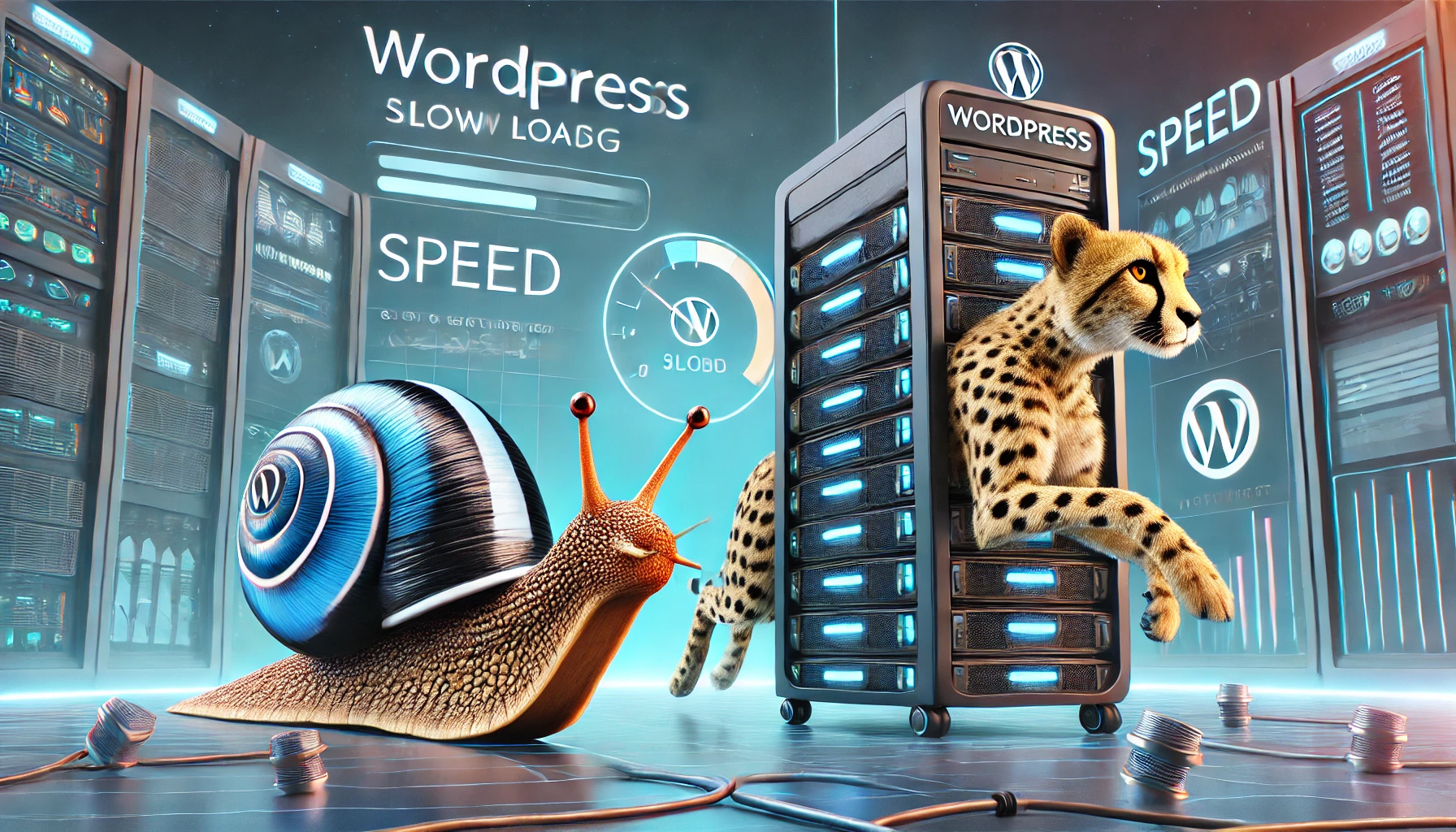
Slow Hosting for WordPress? Here’s How to Improve Your Site’s Performance
A slow WordPress site can severely impact your traffic, user satisfaction, and even search engine rankings. If your hosting isn’t up to par, your site may suffer significantly. In this guide, we’ll explain how to tackle performance issues and boost your WordPress site’s speed.
1. Identify the Root Causes of Slowness
Before taking action, it’s crucial to understand what’s causing the problem. Common culprits include:
- Low-quality shared hosting: Budget services often share server resources with hundreds of other sites, leading to slowdowns.
- Heavy plugins or themes: Complex themes or poorly optimized plugins can increase load times.
- Large files: Uncompressed images or bloated CSS and JavaScript files.
- Lack of effective caching: Caching reduces server load and speeds up your site.
Identifying the cause will help you focus on the most impactful fixes.
2. Upgrade Your Hosting Plan
Your hosting service is the foundation of your site’s performance. If you’re on a low-quality shared plan, it might be time to upgrade to a VPS or a dedicated cloud hosting plan designed for WordPress.
Consider exploring dedicated cloud hosting for WordPress for enhanced speed, reliability, and tailored resources.
3. Enable Caching to Speed Up Load Times
Caching is one of the most effective ways to accelerate WordPress. Plugins like WP Rocket or W3 Total Cache can create static versions of your site, significantly reducing server response times.
Additionally, ensure your hosting supports server-side caching technologies such as Varnish or Redis, which can provide an extra performance boost.
4. Optimize Images and Minify Files
Large, unoptimized images are a common reason for slow loading times. Use tools like Smush or ShortPixel to compress image sizes without losing quality.
Minify CSS, JavaScript, and HTML files using plugins like Autoptimize, which compress code and reduce the number of server requests.
5. Implement a Content Delivery Network (CDN)
For websites with a global audience, a CDN can make a substantial difference. Services like Cloudflare or KeyCDN distribute your site’s static content across a global network of servers, decreasing load times for users far from your primary data center.
6. Monitor and Test Performance Regularly
Use tools like Google PageSpeed Insights, GTmetrix, or Pingdom to analyze your site’s performance. These tools provide detailed reports and actionable recommendations for optimization.
Conclusion
Speed is critical for the success of your WordPress site. Investing in high-quality hosting and following best optimization practices will ensure a better user experience and improved search engine rankings.
If you’re looking for a reliable and fast hosting solution, consider dedicated cloud hosting for WordPress to ensure optimal performance and scalability.
With the right tools and techniques, your WordPress site will be faster and more efficient in no time!
![Vultr_logo_high_res[1] Vultr_logo_high_res[1]](https://b3400949.smushcdn.com/3400949/wp-content/uploads/2024/06/Vultr_logo_high_res1.png?lossy=1&strip=1&webp=1)

![ionos-logo-freelogovectors.net_-640×400[1] ionos-logo-freelogovectors.net_-640x400[1]](https://b3400949.smushcdn.com/3400949/wp-content/uploads/2024/06/ionos-logo-freelogovectors.net_-640x4001-1.png?lossy=1&strip=1&webp=1)
